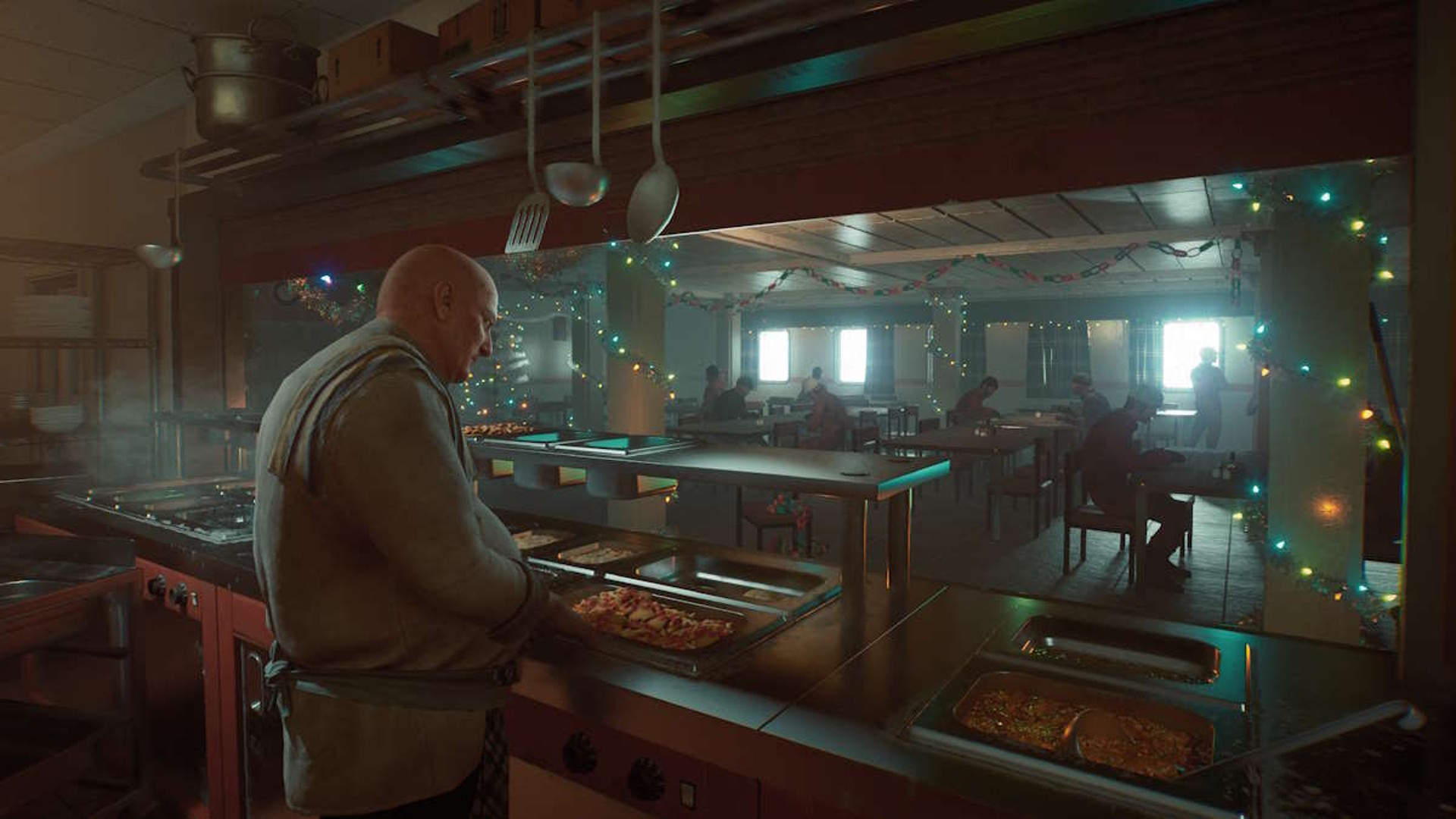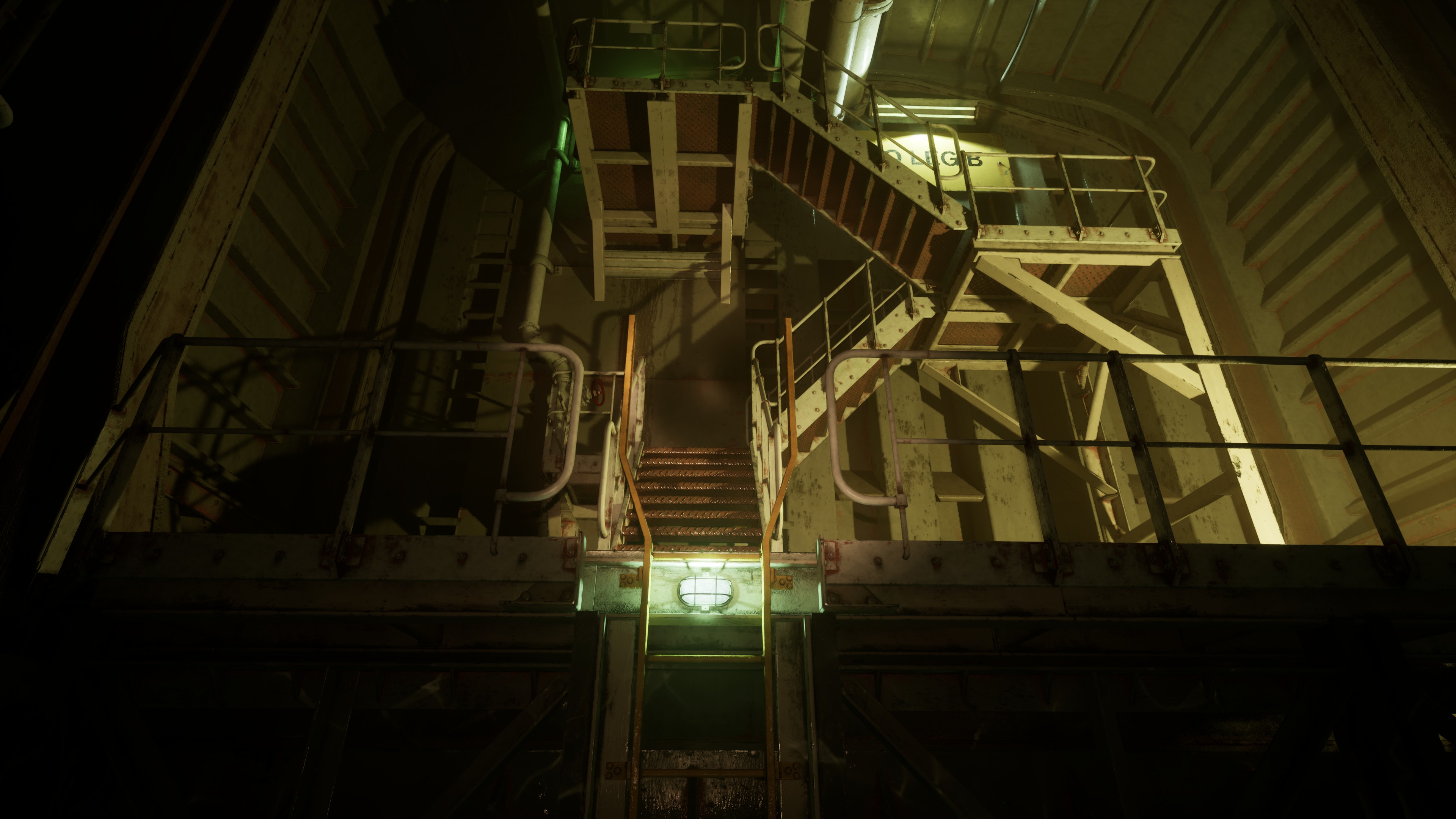
I know I've been hiding in the same locker for far too long, but the choked guttural ramblings of an unseen horror still sound way too close for comfort. It's the first time during my two-hour hands-on session with Still Wakes the Deep that I've had to employ these Alien: Isolation or Outlast-like tactics against a patrolling enemy. Still, the oppressive isolation of its setting on an oil rig makes the game feel plenty terrifying on its own, even without physical foes. With no weapon in hand, nothing to throw as a diversion, and the ominous directional cues of bubbled, burned film stock still edging one corner of the screen to indicate an enemy's presence, I steel my nerves and force myself to press on.
Stepping into the ill-fated shoes of oil worker Caz McLeary was never going to be a journey of sunshine and rainbows, but I'm fascinated by how well Bloodlines 2 developer studio The Chinese Room executes its claustrophobic hide-and-seek gameplay in such a unique setting.
"What we wanted to do was to create an experiential narrative horror that was very strongly grounded in its time and place on this iconic location of an oil rig in the North Sea," says lead designer Rob McLachlan. The horrors that unfold here are tempered by something a lot more human, though: "a narrative theme about love, family, and letting go of relationships, all seen through the lens of extraordinary events happening to an ordinary person."
Death, stranded
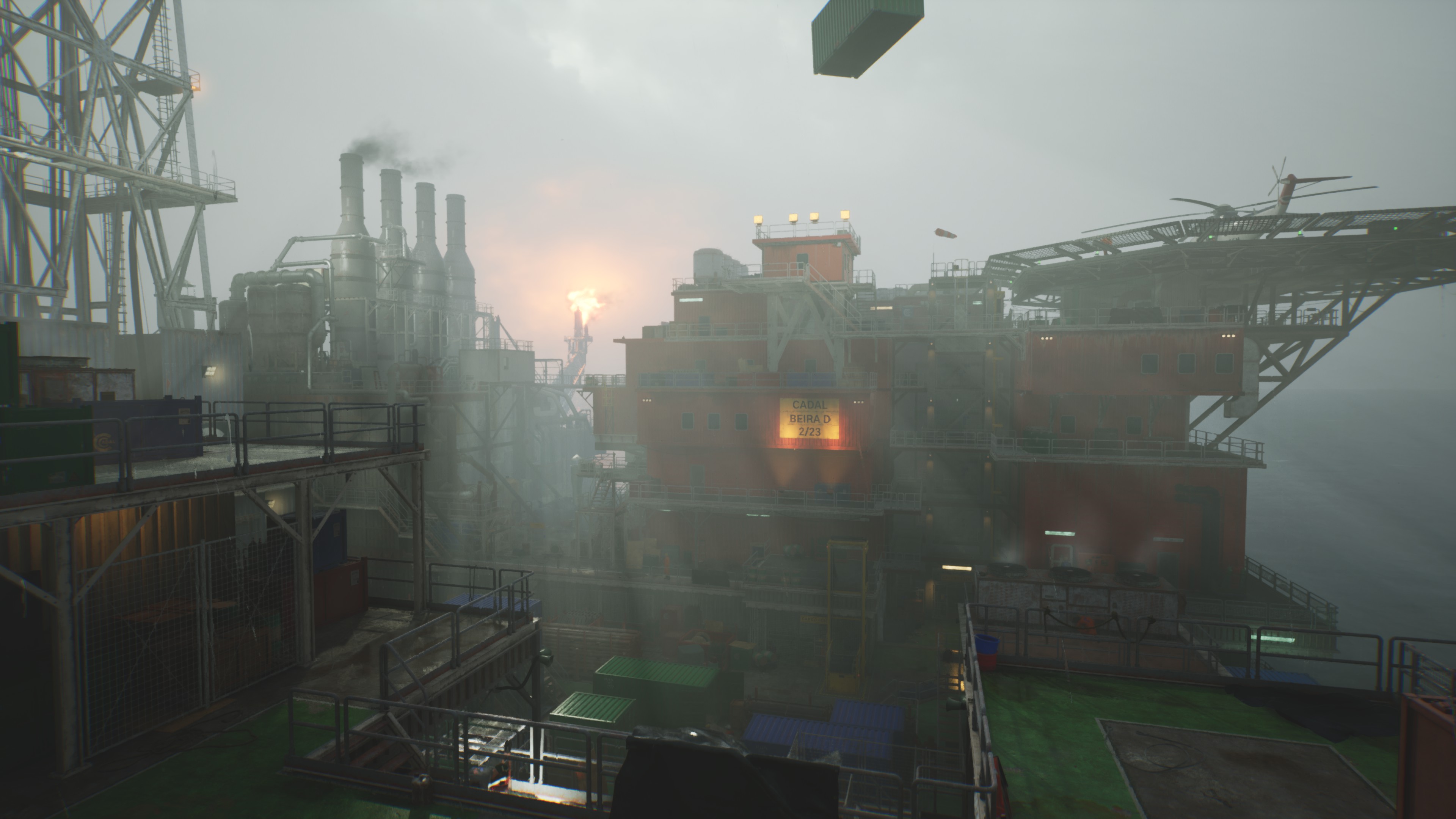
The premise of Still Wakes the Deep is framed by its historical context of Christmastime in 1975, somewhere out on an oil rig with nothing and no one else around for thousands of miles. Caz is a weary electrician, one of many manual laborers being paid large sums of money to ratify taking the unknown risks of a job at high sea, and he's about to be thrown into some very deep water. Metaphorically and literally, if you're unlucky.
Still Wakes the Deep's first-person perspective aids the immersion, letting me delve into the lives of Caz and his colleagues – fellow "merchant marines" sent away for months on end – as I pick through their personal cabins. Examining items in a point-and-click manner adds further grounding in the political, social, and economical realities of the workers' lives back home on mainland Scotland. "It's a time when there were less safety nets in place," says McLachlan. "There's no satellite phones, no GPS, no radio communications. So we wanted it to feel like a more dangerous [twist on the] Wild West."
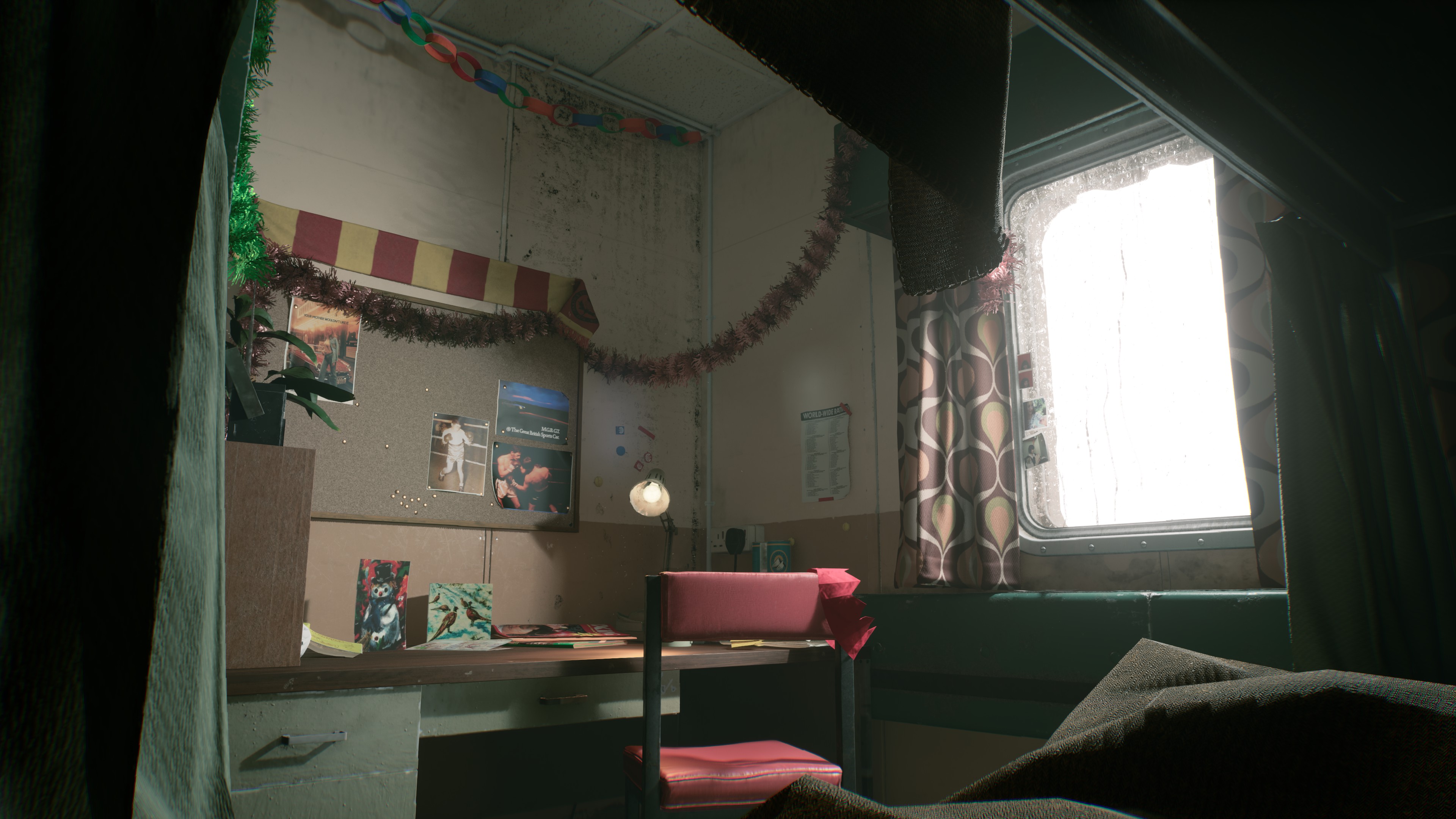
That danger becomes pronounced when, after a gameplay tutorial section of traversal puzzles to get to the other side of the rig, Caz finds himself fired by the harsh foreman for reasons unbeknownst to the player. But it's not just his family coffers that are in trouble; the rig is suddenly rocked by a horrific storm that knocks both Caz and an unfortunate co-worker into the briny depths. After awakening on-deck, it seems the rig has been plunged into the stuff of nightmares.
Before we even talk about the entity that has taken over the oil rig, Caz has to maneuver yet more traversal and platforming puzzles to reach the engineering department. Flames engulf part of the vessel to block my path, the rough sea having torn chunks out of alternate routes. The mechanical groan of metal jars against the angry ocean spray as I leap and climb to my destination, and that juxtaposition of nature versus man-made entity is a deliberate one, according to audio director Daan Hendricks.
The horror! The horror!
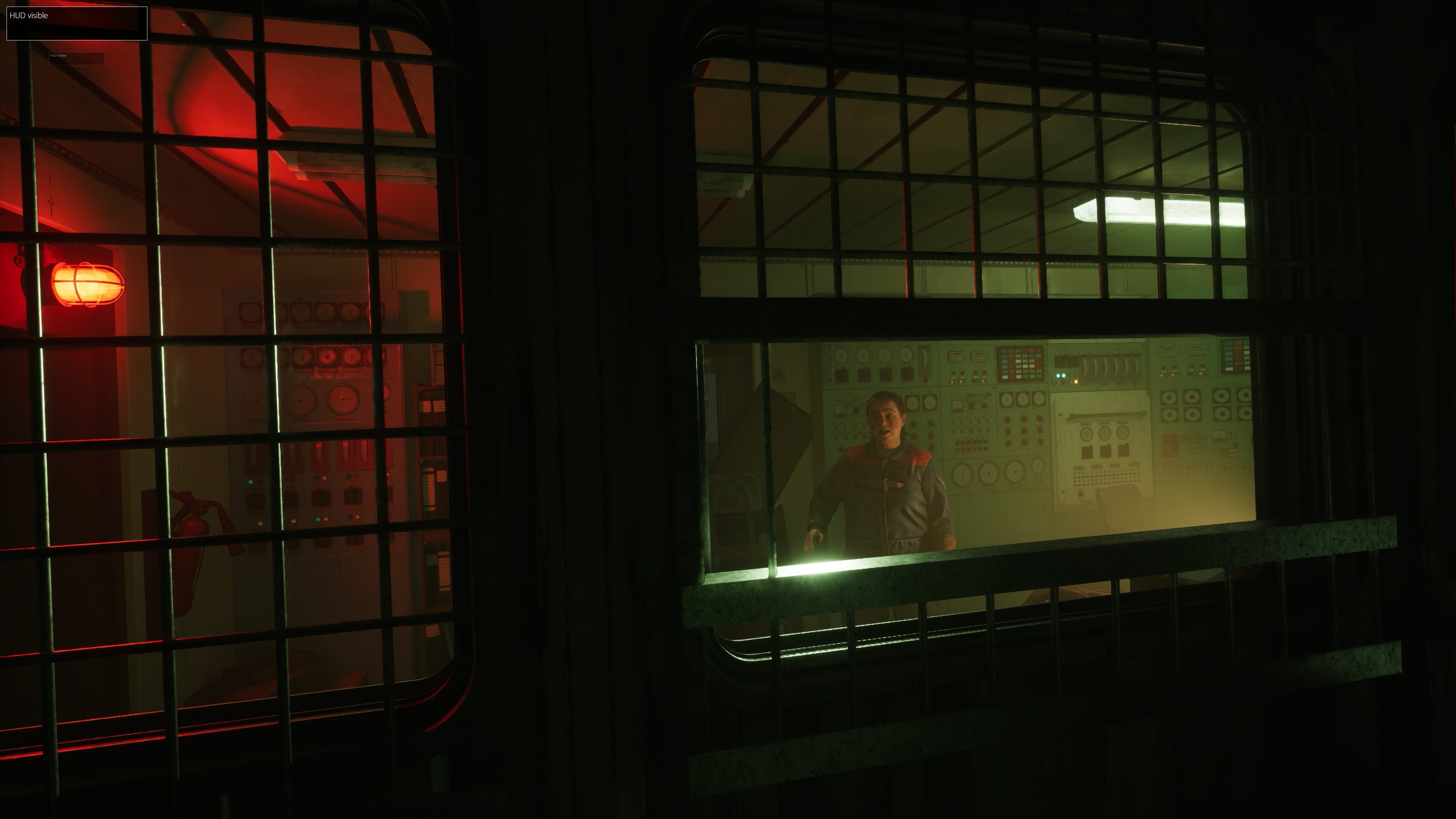
Still Wakes the Deep's oil rig setting is both very specific and eternally evolving, its characterization almost imbuing it with an inorganic 'life' of its own. "We built reaction systems that would make sure that if there's a metallic sound that goes off in the background, it will cause other, different sounds to sort of respond to that," Hendricks says of the rig's unpredictable nature. "We also relate that to the creatures – or things – you encounter, how they might resonate structures around you through the sounds that they make. This was all to serve one idea, really: that you're always in the belly of the beast, surrounded by something that is almost possessed in a way."
I'm not allowed to talk much about what these "creatures" are, exactly – nor am I entirely sure of it myself. But as Caz finds a head-mounted flashlight amid the detritus of the engineering department, and as he opens a door to a dimly lit, partially flooded room of water tanks, I hear it before I see it. Hence why I've been hiding in this locker for quite some time, praying the enemy leaves me alone long enough to warrant me sneaking away.
But it doesn't budge. Maybe the creature is programmed to stay put without attacking to teach me to push past my fears? Perhaps it's a simple case of coding whoopsie that's giving the enemy AI razor-sharp detection skills? Or maybe it's because Caz keeps muttering panickedly to himself and potentially giving his location away, which is both hilariously naturalistic and has me shouting at him to shut up, please. Any of these instances could be the culprit behind the monster's omnipresence, but in the end I dare to drag myself out of that locker and into some very unpleasant-looking, oil-slicked water – which I still think might be a nefarious entity in itself.
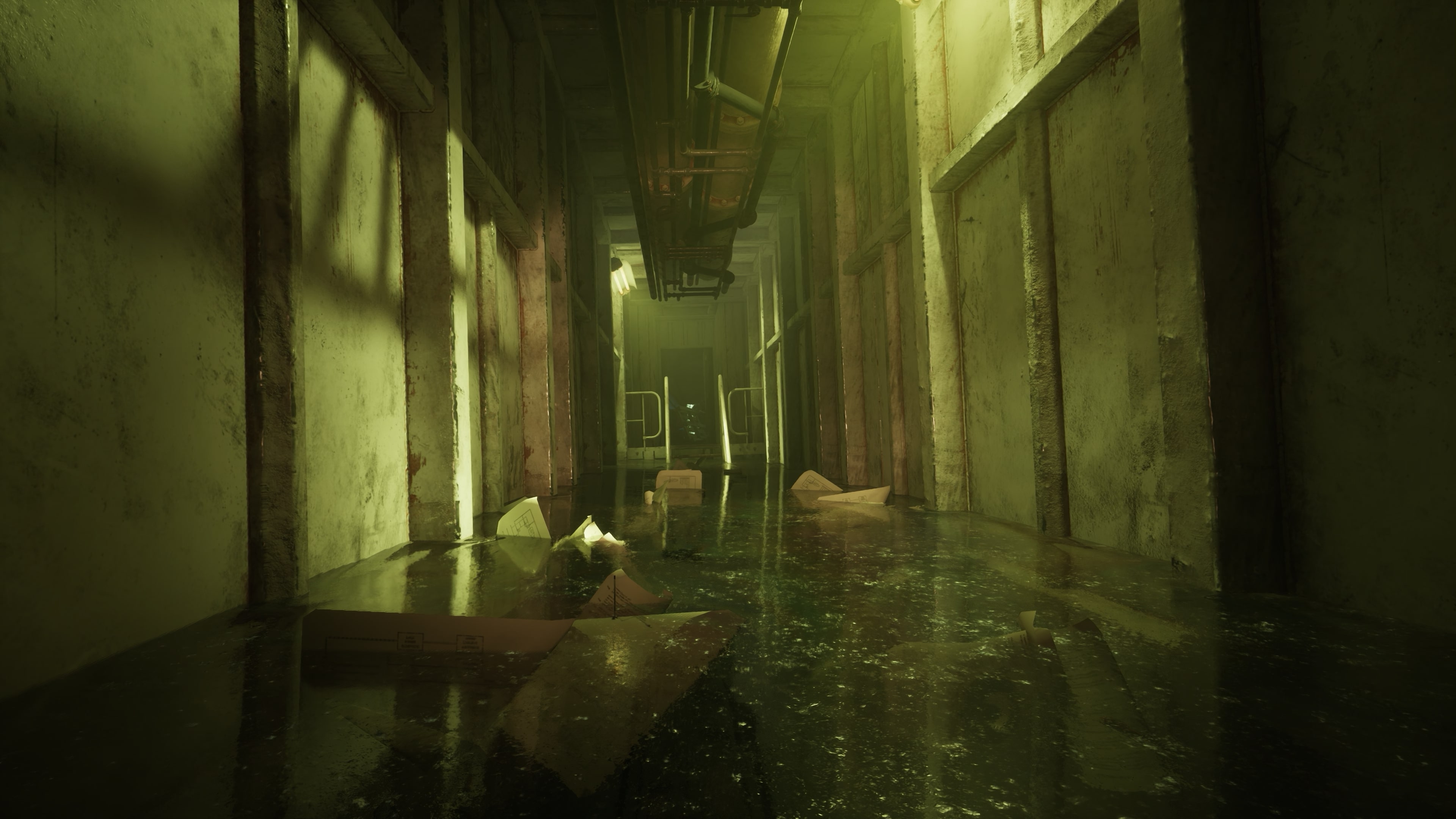
You're always in the belly of the beast, surrounded by something that is almost possessed in a way.
Daan Hendricks
By keeping me constantly on edge and fearful of even looking at the creature, associate art director Laura Dodds reinforces the importance of the camera film bubbling that acts as a visual cue of where danger lurks.
"Where I think a lot of horror films in particular lose their power is once you see what it is that's chasing you," she explains of the directional tool. "We didn't want all the visual information to have to be like, encoded on the entity itself. So we were looking at other ways [to communicate it]. Audio is one, but also this effect that goes around the screen and is great for giving the player a sense that something's nearby, without them actually having to look directly at it."
McLachlan nods in agreement, describing the game's approach as taking the "purposeful obscurity" tack. But fear isn't only in the unseen, according to tech director Louis Larsson-De Wet: "It's also in the mundane. The fear is coming from just the environment of being in a rig, – the height, the water, the cold, the dark, all of the basic things."
And that's just it. Still Wakes the Deep effectively applies its brand of creeping, unseen horror to put me in a permanent state of alarm. I'm doubtful and distrusting of everyone and everything on this oil rig, and aside from a few object collision issues that saw limbs going through shipping container walls or a thrown spanner getting stuck on a metal cage, Still Wakes the Deep is already a thrilling, immersive narrative horror game that just needs a lick of polish here and there ahead of its June 18 release date. See you in the lockers then.
There are a wealth of upcoming horror games to keep track of this year, from Still Wakes the Deep to the Silent Hill 2 remake.
